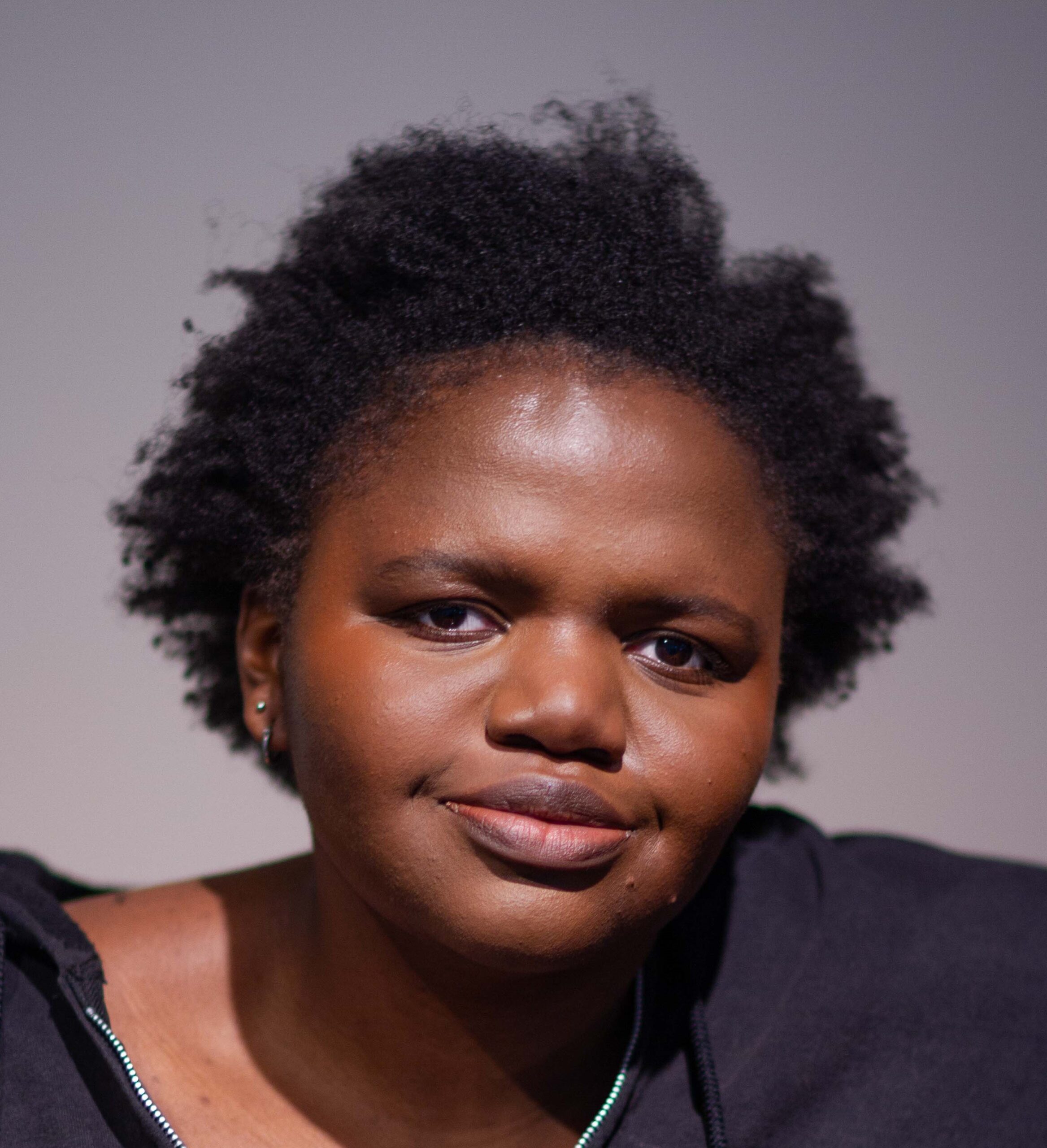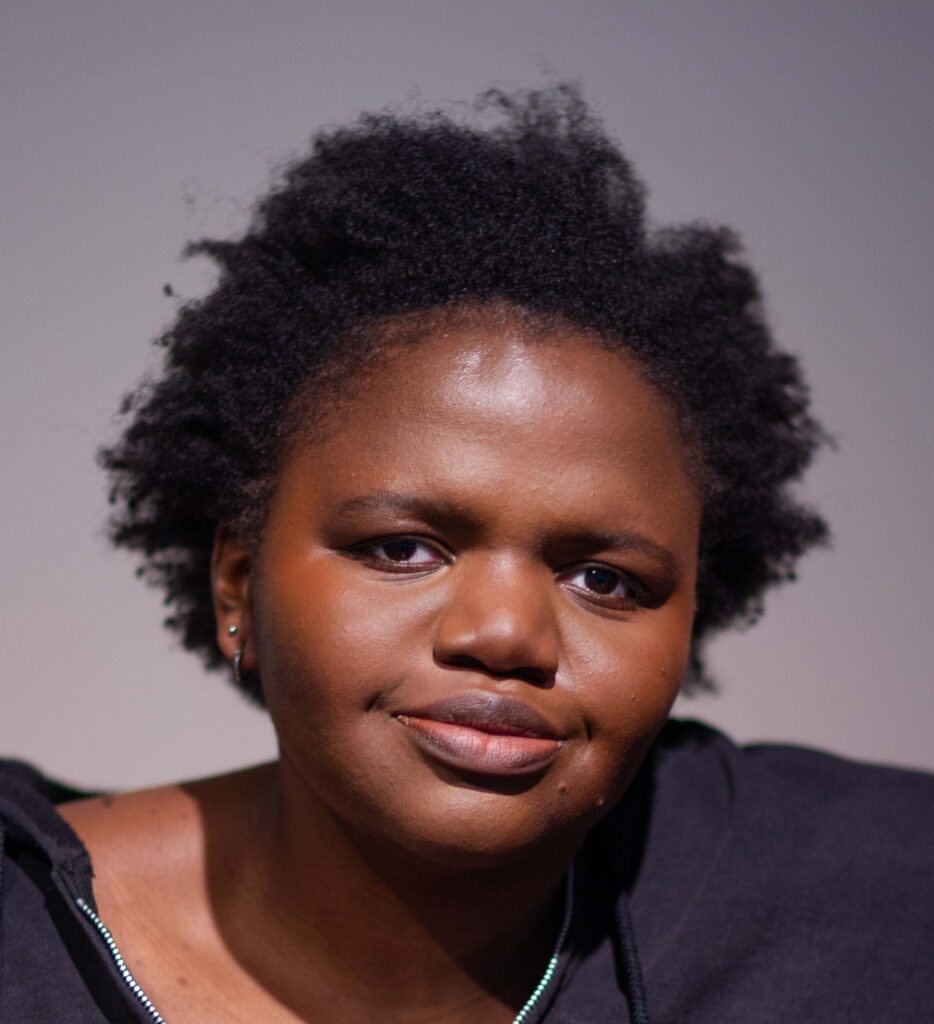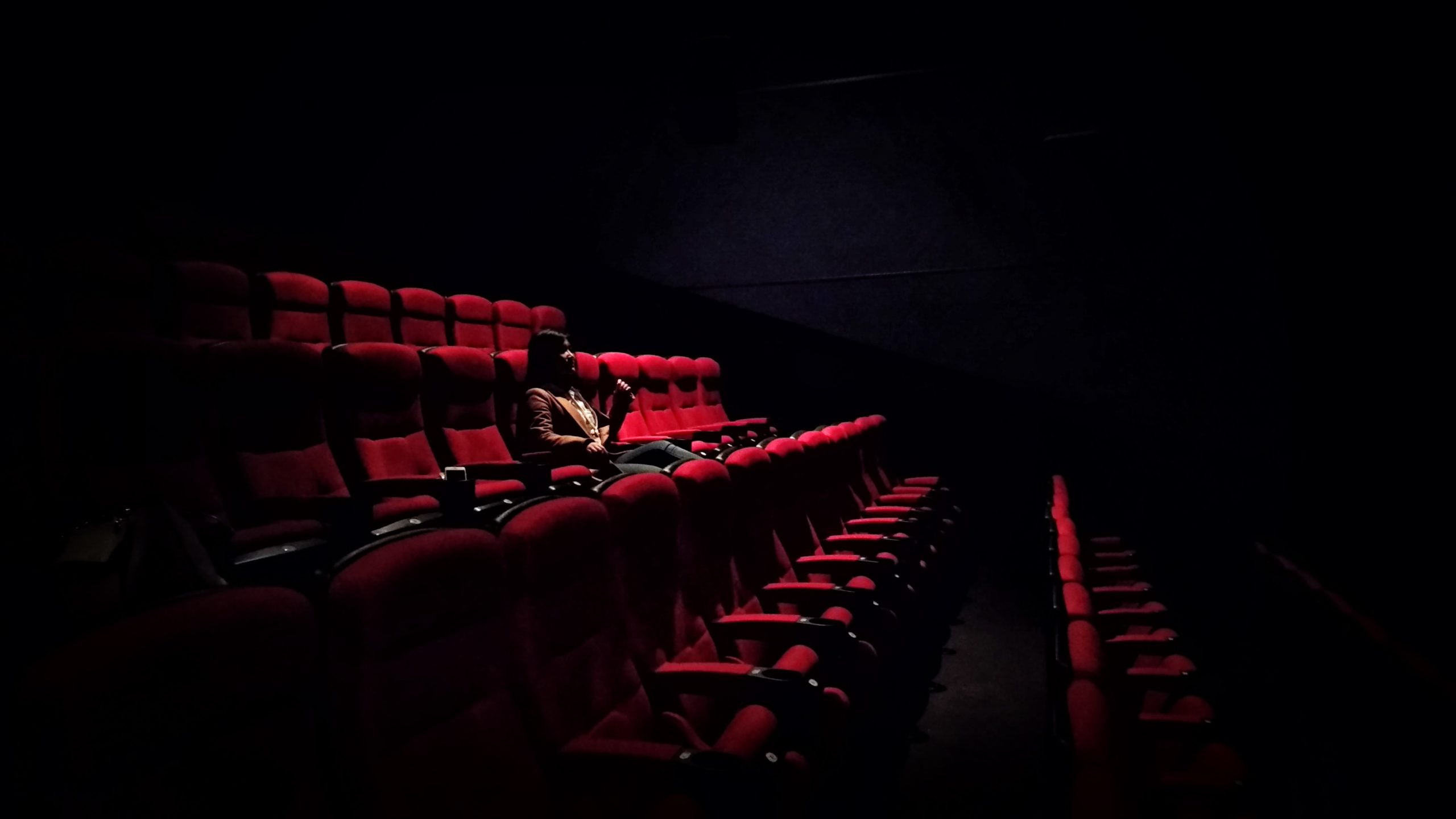
Medina Prize winner Gloria Oladipo reflects on the award with Elizabeth Kramer

Journalist Gloria Oladipo was in a library in September when she got a phone call and learned that a jury of theater, journalism, and communications professionals had named her The American Theatre Critics Association’s second annual recipient of the Edward Medina Prize for Excellence in Cultural Criticism. On the other end was ATCA member Elizabeth Kramer. The two later spoke about the award and her work.
Oladipo, a New York-based journalist and playwright from Chicago, covers breaking news alongside arts and culture, namely theater, film, and television for The Guardian. Her work also has appeared in Teen Vogue, Bitch Media, and other publications. She is a 2023-2025 Public Theater Emerging Writers Group Fellow, 2022-2023 Dramatists Guild Foundation Fellow, and 2023 Seven Devils Playwrights Conference resident.
On Sunday, Nov. 12, critic and journalist Brittani Samuel, the first prize winner, will present Oladipo at the ATCA November 2023 conference in New York.
The following is a lightly edited excerpt of the conversation between Kramer and Oladipo.
What went through your mind when I told you that you won The Edward Medina Prize for Excellence in Cultural Criticism?
When you called, I was at an orientation to volunteer at my library. And then I think you said, ‘Congratulations’ and. ‘critics’. I started putting two and two together. I was excited and grateful and surprised, but I also was trying to figure out what was happening. And this is all happening in a library. So, I’m also trying to be quiet and grateful without, you know, sounding weird on the phone.
I understand the judges were looking over what you had submitted and your background, including that you cover a lot of news as well as the arts. You have a broad background. So, what attracts you to the arts?
I just love being able to interact with the arts not only as a reviewer but also as a patron — someone who just thinks about it and sees what they love. I’m an artist myself. I just appreciate being a part of the community in so many ways. And I feel the arts in general are so important in our society. It’s one of the most underfunded and underrated parts of American culture but so relevant. During times of global emergencies and the pandemic, the arts is this comforting thing we can all engage in that means so much to people. I also feel so many times that arts help reflect changes in society, things that we all understand and observe, but may not have the language for.
As a journalist, being able to interact with the arts is not only an exciting privilege but also a very democratic and important thing where you’re able to kind of help people who may not be able to see the product and cultural touchstone you’re talking about.
I feel so excited to be a part of these theaters. I know how much work it takes to get something on a stage to begin with. I understand being in this community, trying to make a living and the vulnerability that all that takes. I just really feel empowered when I’m in spaces where I’m getting to report and be a part of that. I just love it.
That’s something that ties many of us who report on the arts together. But you also have pursued playwriting and making theatre yourself. How did this dual path come about and how do you juggle it?
I had always been interested in playwriting and writing in general. I come from Chicago, a city that I think prioritizes arts education. I was able to attend programs like After School Matters for writing, journalism specifically. But being part of Steppenwolf Theater’s Young Adult Council really changed my brain chemistry. That program is so unbelievable in a lot of ways. I was able to meet all these different people who help make a play, get it on stage and bring it to audiences. We met the artistic director at the time, [Anna D. Shapiro]. We would meet the playwrights that season. The program has this reverence when it comes to young people that I hope other theaters across the US will emulate because it really does build new audiences in this very integrated way.
Describe some of the activities you remember from the program.
We would do outreach ourselves. We would host teen parties to bring people to the theater. We would have a script book club and read scripts that I never had heard of in high school. We read “Topdog/Underdog” (Suzan Lori Parks’), “Elliot A Soldier’s Fugue” (Quiara Alegría Hudes), and “August: Osage County” (Tracy Letts). These plays are such a canon and hone in on the American experience.
Also, I was interested in playwriting for a while and took all the classes that I could when I went to Cornell University. Then I tried to be involved in theater in other ways — really digging in professionally. I later was a National Critics Institute Fellow [at the Eugene O’Neill Theater Center] after going through the Kennedy Center American College Theatre Festival College as part of its Institute for Theater Journalism and Advocacy. They chose one person to attend NCI, which was me.
Didn’t you also begin exploring playwrighting further after the National Critics Institute?
I was very inspired during my time at the Eugene O’Neill Theater Center. The experience was incredible, bearing witness to these playwrights who are getting this intensive workshop experience. I was excited to be writing reviews. But I don’t think I understood at that point that new play development process existed in this way.
Then, I kind of started writing a play and just entering my script [into play development programs]. Thankfully, a lot of development programs allow you to do things like send ten pages. The Dramatists Guild Foundation is one of them. I got some advice on the process from other playwrights and received my first fellowship. Then the path started being carved out. I had a lot of no’s, but then I had affirmations like being accepted into Seven Devils Playwrights Conference.
How do you balance your journalism and playwrighting activities?
It’s a balance in terms of the working mechanics of it. I spend a lot of my job time on breaking news, which, if people don’t know, involves covering anything. If a pin drops in America, you are writing about the pin. So, there is a literal time investment — having to be organized and thoughtful about how I split my time.
I also sometimes have worried that news reporting, which requires a different tone, takes away from me feeling comfortable doing more creative writing, within arts reporting, and playwriting.
Then when I have a day of covering more intense things, it’s nice to be able to engage with someone’s creative practice and think more about it, especially if I’m interviewing different creatives who are so exciting. As a critic, I’m grateful to be able to see and think more about what an artist does, and to understand that this thing on stage took years in the making.
I know that when I write reviews, I really want to do it from a place of engaging with the work, engaging with intention, and always being mindful of basic empathy practices when it comes to writing. I also just feel very humbled and appreciative as a critic.
Does your arts writing and your playwriting practice affect or influence your news writing or make you look at it in different ways?
It’s just kind of like they all kind of live in my brain — and in a professional way. Newswriting begets a certain type of meticulousness and organization that works like playwriting, the way that I like to do it, and art writing. The actual tone of writing differs. Newswriting really wants you to live in black and white. Arts writing and playwriting are really about the gray. And I think if anything, I find myself really trying to embrace the gray more. I like advocating for us just to live in the gray as news writers, which I guess contrasts with everyone wanting a headline that says, “X equals Y exclamation point.” I’ve grown appreciative of long-form news pieces that show complexities that we can’t capture in a 400-word piece. I also appreciate the ability to insert more nuance into news writing.
And these writing forms are very steeped in ethics for me. I think that ethical thought has always been a part of my news writing. It’s important to make sure anyone who I’ve reported on does not feel like they have been taken advantage of or that my words misrepresent them when they read an article of mine. I feel that way about arts writing. I feel like that about playwriting, especially with characters, just like making sure characters live in a truthful way. Overall, these are the same principles of accuracy and honesty.
So what does The Edward Medina Prize for Excellence in Cultural Criticism mean for you going forward?
It just fills me with this sense of gratitude. It’s so helpful and affirming to know I’m being recognized in honor of someone who sounds incredible and so dedicated to making art criticism a better, more inclusive, more thoughtful space. I am just very grateful to have our careers even mentioned in the same sentence and our artistic practices mentioned alongside each other.
I’m grateful to have earned this award because I would love to continue contributing my criticism and arts writing in a fuller capacity in my newsroom. Newsrooms have the direct ability to uplift Black and brown art writers, a vastly underrepresented group, and I’m excited to see how they will continue to pour into me.
I’m excited and grateful to see this kind of support for theater journalists, especially when the whole industry is going through tough times. And I think it’s always helpful to remember the importance of this. I’m just excited and yeah, it’s so cool.
— submitted by Elizabeth Kramer, lightly edited by Martha Wade Steketee.





Sorry, the comment form is closed at this time.